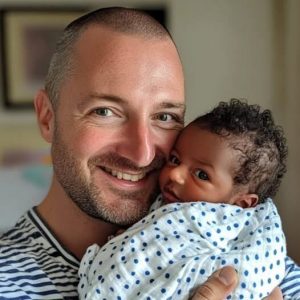When I write this, my hands are still shaking. I’m Ryan, 19 years old, and I never imagined the truth behind my childhood would come roaring out like this. My mom, Melissa, was my anchor — she loved me out loud, with Friday-night mac and cheese, forehead kisses, and the beat-up Subaru that smelled like coffee and rain. When I was only nine, she died of breast cancer. Before she passed, she set up a $25,000 trust for me to receive on my eighteenth birthday, telling me it was for “college, a first place – something that makes you proud.” My dad promised to protect that money, and I believed him.
For a while, he tried. He worked, showed up at my science fairs, and did the best he could as a single dad. Then he met Tracy: warm brownies, sweet compliments, a smile that made everything feel easy. She married him a year later, brought in her own son Connor — swaggering, in designer sneakers — and moved into our house. Bit by bit, things changed. My mom’s things began to disappear. After Dad died of a heart attack three years later, Tracy became my legal guardian, and she stopped hiding her real feelings. Connor got a newly upgraded gaming setup, eventually a Jeep — I got his old shirts and a thin, sagging mattress in the basement because I was “too messy” for a real room. Their priorities made the house theirs. If I asked for a winter coat, I got a lecture on gratitude. Connor, meanwhile, would stomp above me in the ceiling and mock me, calling me “rat boy.” Each year, I watched them and waited for my eighteenth birthday.
When I turned eighteen, Tracy threw a party — glitter-free, stiff, store cake, and paper streamers. After everyone left, I asked her about the trust. She avoided eye contact and said, “Honey … the money’s gone. We needed it.” She called it “household needs.” I dared to ask if that meant Connor’s Jeep, and she cracked, saying I should watch my tone. The next morning, I called Mom’s old lawyer, Mr. Latham, the one she told me to trust if anything ever happened. He was blunt: six months earlier, Tracy had withdrawn the entire $25,000 for “guardian expenses.” Legal, he said, because I was still a minor — but it felt like betrayal. So I picked up two jobs: one at a grocery store during the day, another at a mechanic’s shop at night. I bought my own food, clothes, and a little peace.
Connor was always showing off, but after graduation, he revved the Wrangler in the driveway — the same Jeep his mom’s money paid for. He shouted at me: “Maybe I’ll let you wash it, basement boy.” I ignored him. I didn’t plan to back down. Then, two months later, karma came calling. It was late-autumn, roads slick with rain, and Connor was texting while speeding to a party. He smashed into a guardrail and another car. He survived — just — with fractures, a concussion, a messed-up shoulder. The Jeep was totaled. The other driver, a mother, and her kid were badly hurt. At midnight, neighbors pounded on the door. Tracy was screaming. Without hesitating, I grabbed the keys and drove her to the hospital. Not because she deserved it — but because I know what it feels like to nearly lose someone.
When the police filed their report, it was ugly: reckless driving, texting, witnesses. A few weeks later, a lawsuit arrived. It was filed against Tracy — the Jeep was in her name. She came to me, hands shaking over legal papers, begging for help. “Ryan,” she whispered, “I… I can’t do this alone. Maybe you could help with the bills.” My blood boiled. “You mean the bills my inheritance already paid for?” I said. She accused me of ingratitude. I went to bed. In court, she stood in a black dress, trembling, talking about how hard she’d struggled. But the other side’s lawyer laid out the bank statements: withdrawals timed suspiciously right after she gained guardianship; money gone under vague “expenses.” The judge paused, then stared at her. “Family expenses,” he asked flatly. “Like your son’s Jeep?” Silence drowned her.
The ruling came down heavy: Tracy owed $75,000 to the injured family for medical bills, hospital costs, and damages. And to me — $25,000, for misusing guardian funds and violating her duty. A full $100,000 judgment. Of course, she had no way to pay. The Jeep was wrecked beyond repair; the house went up for sale. Thirty days later, a dented U-Haul sat on our curb. I sat on the front steps, sipping instant coffee, watching movers box up the life she’d tried to build over my mother’s memory. She paused at the door, suitcase in hand, and said, “You’re cold, Ryan. I treated you like my own.” I replied, “No. You treated me like I was just another burden. My mom loved me like I was everything. That’s the difference.” She shut the door and left. Connor’s football dreams crashed too — they can’t afford the support. But for me? Something just clicked: mine are just starting.
Now, I stay. I work at the garage, I pick up grocery shifts when I can. The guys donated an old Ford Ranger, and I helped rebuild it — scratched, loud, but mine. I’m investing every paycheck into school. I’m not rushing, because for the first time in years, I don’t feel like I’m bracing for impact. I survived twelve years of not being seen. Now, I believe I have a future worth fighting for — one that Mom would be so damn proud of.




